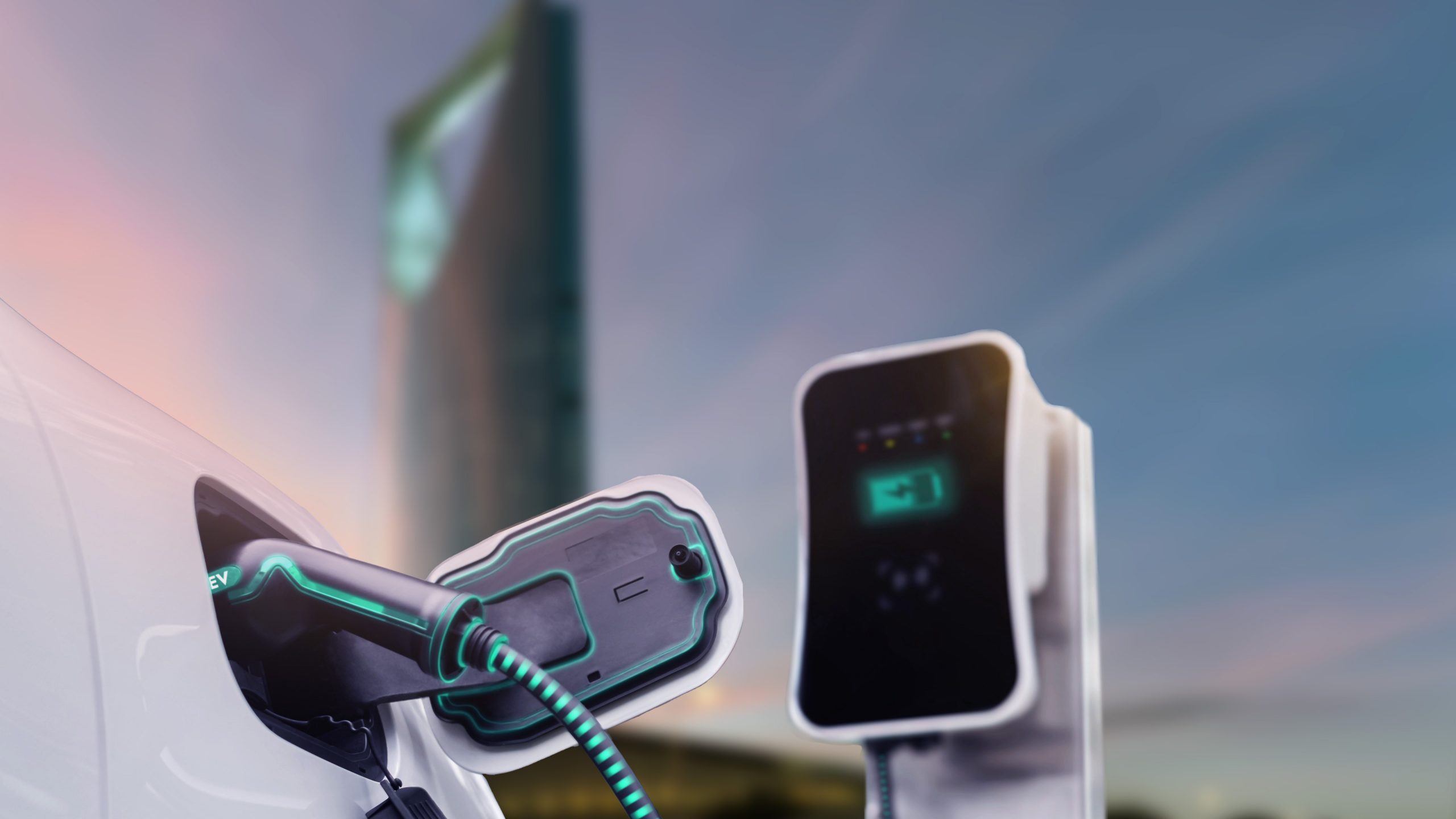In the not-so-distant future, electric vehicles (EVs) will be a common sight on Riyadh streets, exceeding the one-million mark by 2030, as Saudi Arabia’s EV sector is on track to increase production by 600,000 annually.
In its stride towards being a manufacturing powerhouse, EVs play a crucial role in diversifying industrial expertise, alluring top talents to invest in its dynamic output, increasing exports, and steering the nation away from reliance on oil-generated revenues.
Saudi Arabia’s deep commitment has positioned the Kingdom as a key player in the global EV industry, not only in terms of production and manufacturing but also in enabling a conducive environment for EV players that could spur innovation in that emerging space.
The growing EV market appeal, coupled with its increased value in Saudi Arabia, emerges as a key attractive proposition for global industry players operating across the entire value chain.
Key Highlights
- The Electric Vehicle Infrastructure Company (EVIQ) is expected to establish more than 5,000 chargers across more than 1,000 stations by 2030.
- In 2023, Lucid Motors manufactured 800 electric vehicles at its first global facility in KAEC.
- Earlier this year, Ceer awarded a $1.3 billion contract to Saudi company Modern Building Leaders (MBL) to establish its Ceer Electric Vehicle Manufacturing Complex.
- By 2030, 30% of all cars in Riyadh will be electric.
Charting the Roadmap for Mass EV Adoption in Saudi Arabia
The expected surge in EV adoption will be bolstered by the ubiquitousness of charging points produced primarily by the Electric Vehicle Infrastructure Company (EVIQ), a joint venture between the Public Investment Fund (PIF) and the Saudi Electricity Company (SEC) that was founded in late 2023.
EVIQ will enable a faster rollout of charging points across the Kingdom, with plans to establish more than 5,000 chargers across more than 1,000 stations by 2030, further contributing to strengthening the EV infrastructure in the country.
Saudi Arabia’s vision can be seen through concrete developments across the country. One notable example is the Lucid manufacturing plant, partly owned by the PIF in King Abdullah Economic City, which has become operational, producing vehicles for both domestic and international markets. Last year, Lucid Motors manufactured 800 electric vehicles at its first global facility, located in King Abdullah Economic City (KAEC).
Advancing the Kingdom’s attempts at establishing a local EV industry is its first local EV brand and original equipment manufacturer (OEM), CEER, a joint venture between the PIF and Foxconn.
Earlier this year, Ceer awarded a $1.3 billion contract to Saudi company Modern Building Leaders (MBL) to establish its Ceer Electric Vehicle Manufacturing Complex in King Abdullah Economic City. With the construction of its manufacturing complex well underway, CEER is expected to contribute $8 billion to Saudi Arabia’s direct GDP by 2034 and create up to 30,000 direct and indirect jobs.
Such projects bring the Kingdom closer to its goals of transitioning 30% of all cars in Riyadh to electric by 2030. Both of these targets are part of a larger strategy aiming to cut emissions in the capital city by half, which will, in turn, help the country achieve carbon neutrality by 2060.
For Saudi Arabia, Ceer represents much more than a successful local business with the capacity to advance the sector. Localizing the EV industry serves multiple strategic goals, including economic diversification, job creation, and environmental sustainability.
Access the latest news in Saudi. Subscribe to the Saudi Roundup Newsletter
Meeting Sustainability Objectives in Saudi’s EV Industry
The non-oil revenue streams feed into one of the main targets of Vision 2030, which is to diversify the Kingdom’s economy and help the country break away from its heavy dependence on oil. By investing in the EV sector, Saudi Arabia seeks to build a new industrial base that can generate sustainable economic growth.
Moreover, the integration of renewable energy sources, such as solar and wind power, into the national grid supports the EV infrastructure and ensures a sustainable energy supply for the growing number of electric vehicles.
This also aligns well with Saudi Arabia’s ambitious environmental targets of increasing the use of renewable energy sources to reach net zero emissions, which represents a core area of Vision 2030 that increasingly attracts the attention of manufacturing industry innovators worldwide to the Saudi market.
Promoting the adoption of EVs, which have lower emissions compared to traditional internal combustion engine vehicles, is one way the Kingdom plans to decrease urban pollution and improve air quality.
Giving strength to these efforts is Saudi Arabia’s strategy of collaborating with leading global automotive and technology companies. Partnerships with companies like BMW, Tesla, and Schneider Electric bring advanced technologies and expertise to the Kingdom, making it possible for Saudi Arabia to produce and support high-quality electric vehicles. For instance, in the second half of 2024, Lucid Motors exceeded its quarterly delivery estimates, producing 2,110 vehicles, or 21% more than the previous quarter.
Saudi Arabia’s Rise as a Hub for EV Innovation
With Vision 2030 being the key driver of innovation in the EV industry, investment opportunities remain on the increase for global companies with an incline towards establishing a first-mover advantage in a rapidly growing market.
Such opportunities can be found in research and development (R&D), customization of charging, and battery-swapping technologies, which are giving rise to new business models and setting new standards in the global EV industry by improving the customer experience and convenience.
In that sense, the EV space in Saudi Arabia remains brimming with many partnerships and deals focused on facilitating innovation on the production side as the country seeks to carve out a niche for itself in the global market in light of the fact that EVs will constitute half of global car sales by 2035.
These collaborations are vital for building a competitive and innovative EV industry that can meet both domestic and international demands.
These collaborations are vital for building a competitive and innovative EV industry that can meet both domestic and international demands.
Saudi Arabia’s concerted efforts to develop a thriving EV industry support two major Vision 2030 goals. The high-performing sector promotes economic diversification and spurs global business expansion to Saudi Arabia, positioning the Kingdom as a leading player in the global shift towards sustainable mobility.

